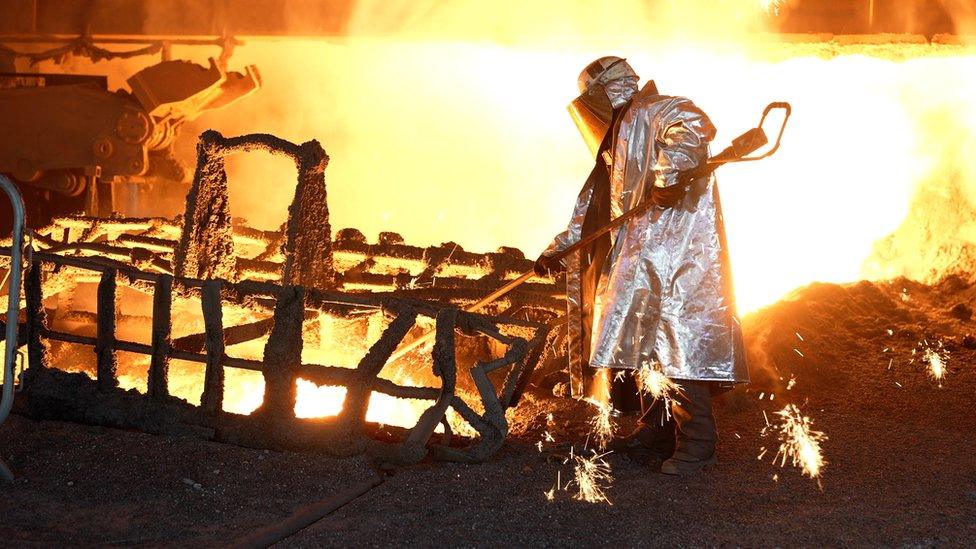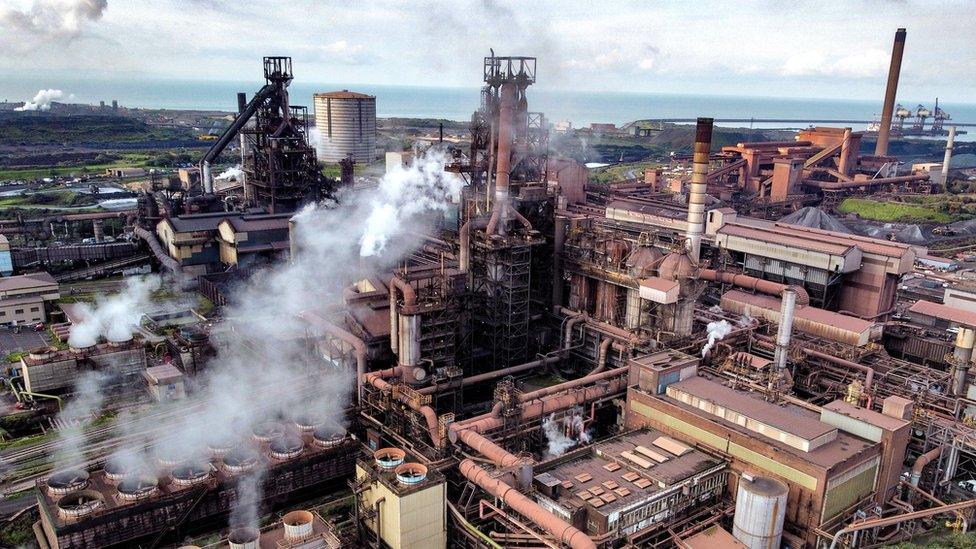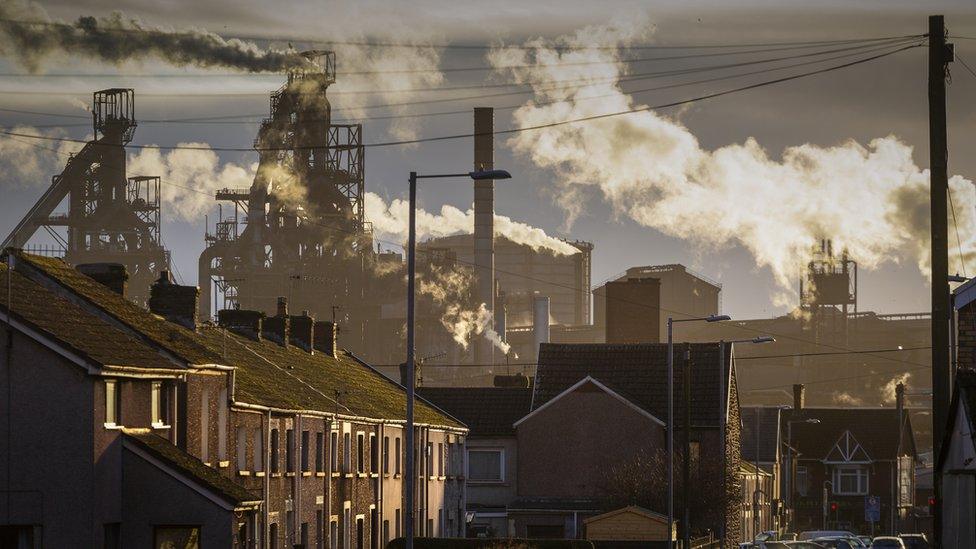Port Talbot: Support group meets as Tata job cuts loom
- Published

Tata Steel employs about 4,000 people in Wales
A group has met to discuss support for steelworkers and residents affected by large-scale job losses at Britain's biggest steelworks.
Tata Steel's site in Port Talbot received £500m from the UK government last month as part of a £1.25bn plan to switch to greener steelmaking.
About 3,000 jobs are likely to be lost across the UK as a result of the deal.
As part of the plan, a transition board was set up with £100m in funding to invest in skills and regeneration.
Tata Steel employs about 8,000 people in the UK, with 4,000 of those in Port Talbot.
The transition board, chaired by Welsh Secretary David TC Davies, met at the steelworks in Port Talbot on Thursday to agree on its membership and ways of working.
The existing coal-powered blast furnaces at Port Talbot will be replaced by electric arc technology, which melts scrap steal using energy from sustainable sources.
It will end the production of so-called virgin steel, made by heating iron ore at high temperatures, at the south Wales site.
When the deal to decarbonise Tata Steel was announced, the UK government said it would work with the company and the Welsh government to support staff and the community.
Levelling Up Secretary Michael Gove and Welsh government economy minister Vaughan Gething serve as deputy chairs on the board.
It includes representatives from Tata Steel and unions representing its workforce, as well as local politicians.
The board is not connected to the official consultation on the decarbonisation plans between Tata Steel and the unions, which has not yet begun.
The Welsh secretary described the meeting as an "important first step".
He said: "We know that there are challenges ahead, but I'm clear that we have the right people around the table who will all be doing their absolute best to facilitate the transition to greener steel and the impact that has on the community."
At the meeting, Neath Port Talbot council leader Steve Hunt said he was "very excited" about the "prospect of being able to manufacture green steel here, on this site, that can be turned into turbines that will generate green power at scale in the Celtic Sea and elsewhere".
But he said the transition to green steel would have an "impact" on the community, calling on the group to "work together to minimise those impacts".
- Published16 September 2023

- Published15 September 2023

- Published15 September 2023
